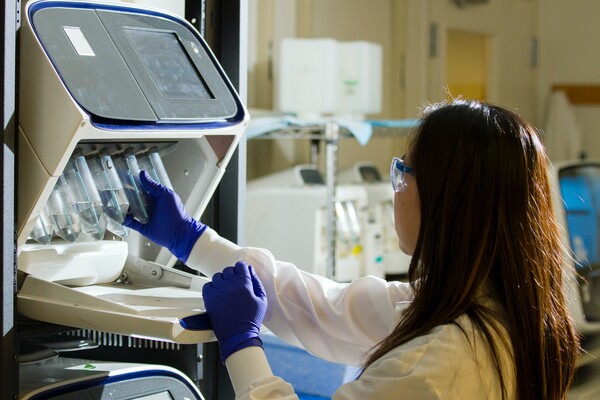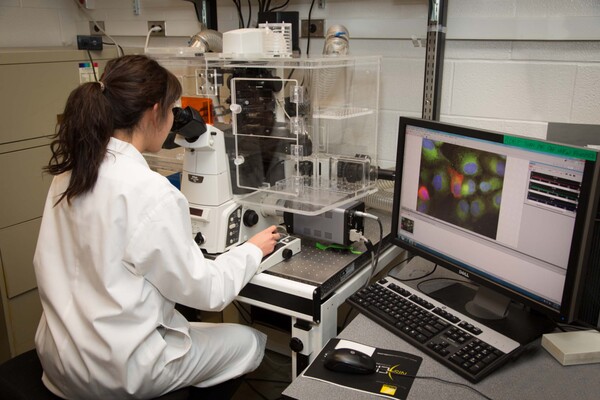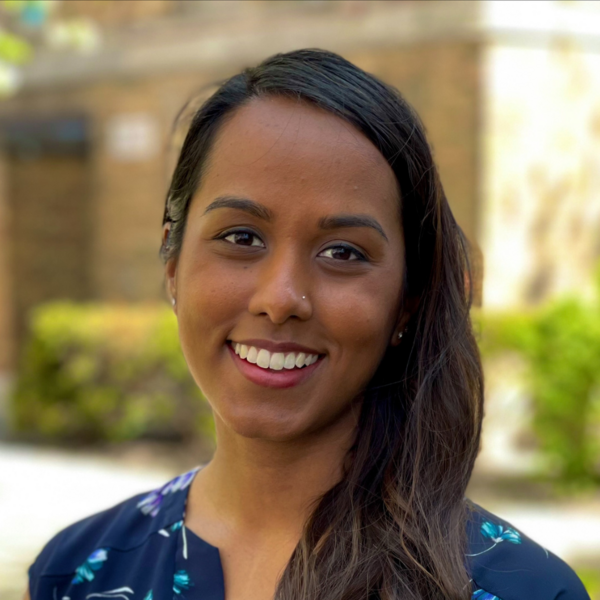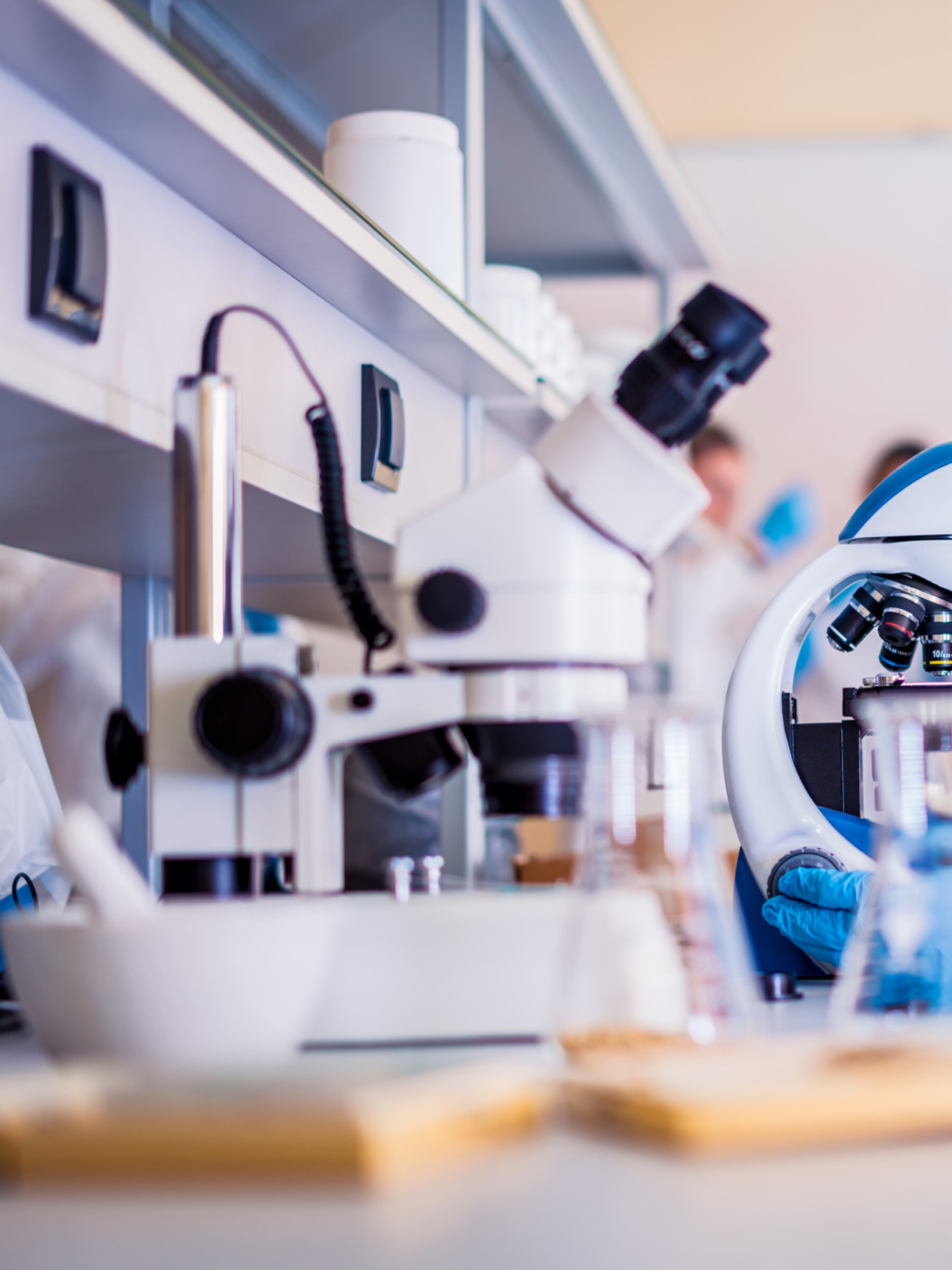
Genetic Counselling
MSc
Our Program
The MSc program in Genetic Counselling is a full-time graduate program housed within the Department of Molecular Genetics. It prepares students with the academic and clinical skills to function as highly competent genetic counsellors in a variety of work settings.
Genetic counsellors work in many areas of healthcare and are involved in the provision of genetic counselling and risk assessment to individuals and families with, or at risk for genetic disorders. The program is accredited by the Accreditation Council for Genetic Counseling.
Students complete 13.0 FCE* which includes didactic coursework, clinical rotations and an independent research project. The curriculum is designed exclusively for genetic counselling students and delivered by local and international experts in this field. Under the supervision of a faculty member, the independent research project is an opportunity to engage in the full spectrum of conducting research – from developing a protocol, to obtaining research ethics approval, analyzing data and presenting findings. Through this project, students gain an understanding of the research process and learn to appreciate the skills required to undertake clinical research.
Students are exposed to a variety of clinical rotation opportunities offered at University of Toronto affiliated teaching hospitals, or at other hospitals in the Greater Toronto Area. Students choose from over 10 options to fulfill an elective rotation in the areas of research, fertility, or in the private sector setting. Successful students typically complete this program within 2 years.
Courses

Students complete the following combination of courses, clinical rotations and labs in year-one:
- MSC 2010Y (Molecular Medicine in Human Genetic Disease)
- MMG 1120Y (Clinical Rotations I)
- MMG 1122Y (Issues in Genetic Counselling I)
- MMG 1124Y (Principles of Effective Counselling)
- MMG 1126Y (Clinical Issues in Pregnancy and Child Development)
- MMG 1128L (Risk Calculation and Research Methodology)
- MMG 1130Y (Tutorial in Molecular Genetics)
- MMG 1132H (Laboratory Skills)

In year two, students complete the following:
- MMG 1220Y (Clinical Rotations II)
- MMG 1222Y (Issues in Genetic Counselling II)
- MMG 1224Y (Advanced Principles of Effective Counselling)
- MMG 1226Y (Concepts in Clinical Genetics)
- MMG 1228Y (Independent Research Project)
- MMG 1230H (Cancer Genetic Counselling)
Successful students typically complete the program in two years.
Alumni Profile

Meaghan Leslie, MSc
My name is Meaghan and I’m a Certified Genetic Counsellor at the Cancer Genetics Clinic within the Juravinski Cancer Centre in Hamilton, Ontario. I support patients who have a personal and/or family history of cancer by assessing their likelihood of having hereditary cancer syndromes, contributing to their understanding of cancer genetics, while supporting them in their decision-making regarding genetic testing and cancer screening/management.
Prior to starting the MSc Genetic Counselling program, I completed a research-based Master’s degree in Molecular Genetics at the University of Toronto. The MSc Genetic Counselling program allowed me to continue to develop my research skill set, with a greater focus on patient-centered research. I had the opportunity to conduct my own research project, which involved assessing patient interest in app-based educational tools. I translated this interest into my new role as a Cancer Genetic Counsellor, where I am actively involved in developing educational materials, such as infographics, to enhance patient education.
I was grateful to have the support and mentorship of the program directors, supervisors, and instructors throughout the MSc Genetic Counselling program. I am especially appreciative of the countless learning opportunities. My clinical supervisors allowed me the opportunity to develop my own style as a genetic counsellor, while offering invaluable guidance and encouragement throughout the process. The MSc Genetic Counselling program was always a dream program for me, and the learning experiences and lifelong connections that were established along the way certainly exceeded all of my expectations.
Potential Career Paths
Sample Job Titles
Alumni from our program have the opportunity to pursue diverse careers. For example, they can work in:
- Laboratories
- Research
- Academia
- Industry
- Healthcare
- Public health
- Hospitals
- Private Clinics

By the Numbers
Department of Molecular Genetics
*Full course equivalent. A typical 0.5 FCE is over one term (13 weeks), meeting 1-2 times per week. A typical 1.0 FCE is over two terms (26 weeks), meeting 1-2 times per week.